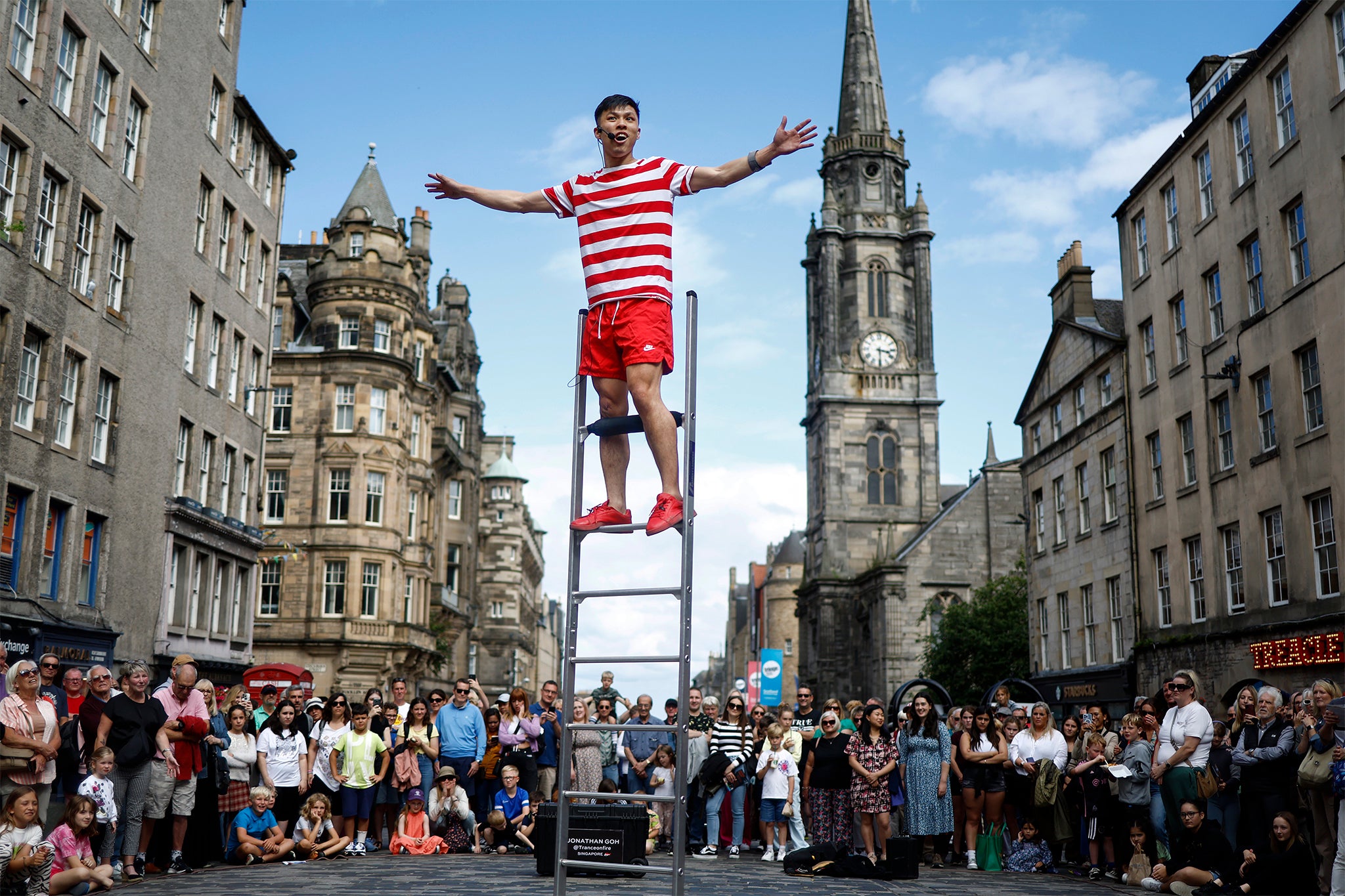I’m a comedian at the Edinburgh Fringe – this is the inside story
As the UK’s premier comedy festival comes to a close, comedian Vix Leyton gives us the inside scoop on bad reviews, empty theatres and the real cost of showbusiness


There has been a lot of conversation in the comedy world over the last couple of years about the Edinburgh Fringe and whether or not it’s “over”.
Once the global jewel of the comedy crown, attracting thousands of comedians to try their luck at whatever stage of the game they were, this year particularly felt like the shine has gone off somewhat.
The Fringe was, and still is to a certain extent, the ideal kind of place for a Cinderella story; every year a handful of acts are “discovered” seemingly “overnight” and catapulted into the next phase of their career.
Last year the standout was Jordan Gray, whose show Is It a Bird? started in a shipping crate at the beginning of August and was in London Palladium by October. But for every lightning strike, is a much more mundane case of somebody heading into the autumn months in financial and emotional debt to their dream. Edinburgh Fringe has never been more expensive to be part of, and with a cost of living crisis, the risk of it not paying off has never been greater.
I’ve brought two shows up this year and it is undoubtedly my last roll of the dice as I simply cannot afford to do this again. I started comedy at a relatively late age, at a time when luckily I was in a solid career making enough money to live comfortably (because the beginning of a stand-up career is essentially one long unpaid internship with no guarantee of a role at the end).
I have spent the past four years (between pandemics) travelling the length and the breadth of the country performing in the corners of pubs, largely for free, crying on the train home clutching my expensive tickets to try to earn the credibility to progress to paid work.
Last year I came up all guns blazing, with stars in my eyes hoping for my big break – the month was humbling, expensive and laid bare the full scale of the competition alongside how skewed the game was. You are competing for an audience against stadium fillers, and reviewers have the power to make or break your run.
This year my show has achieved two, three, 3.5 and four stars from different publications. I was lucky to have all of those reviewers in, choosing me out of 4,000 shows to see. But when you’re relying on audiences making snap box office decisions, you yearn for the extra 0.5 that could be the difference maker between an empty theatre and a packed house.
While you see the one story reported in the national press every August of the poor soul who had to perform bravely to one person, what you don’t see is how normal this is. The urban legend is the average Edinburgh Fringe audience is six. So hard-working, hopeful comedians who have saved hard all year are turning up every day to tiny numbers or, more often than gets reported, pulling their show due to no one being there at all.
In the face of the rising costs of literally everything, with these odds, I know I cannot justify this again if I don’t see any benefit from it.
While undoubtedly talented people can fight their way to the top after years of work, some would-be world-beating comics never get to where they should because the cost to get there is out of their reach. Acts with access to disposable income can snap up posters, pay PR experts, employ a fleet of flyerers and take up space in iconic venues in the busiest, most lucrative parts of town.
For those who are operating on a budget, the main route is through the Free fringe, where you are allocated a venue somewhere around the city – from a private karaoke booth to a pub on the outskirts of town – then you save hard to pay for the extortionate accommodation fees and hope for the best.
It’s a flawed system, but it worked(ish), when there was enough audience to go around. This year the cost of accommodation has not only priced out performers, but also those on lower incomes; students who would previously pay their way through the month flyering can no longer make the costs work, leading to a shortage and upping the price for everyone. It cuts both ways, as those would-be comedians are also potential audience members, who are no longer available to wander into your show.
Working-class fans who treated it like their holiday now have to weigh it up against a trip abroad, with average accommodation in the city starting from £200 a night before a single ticket is bought. For the people who are making it to the festival, they are too strapped for cash to necessarily take a risk. It’s undoubtedly the worst time to bring a show here.
That said, I can’t say I regret being here. While you are picked apart by critics, and up against some of the fiercest competition of your life, I have never lost sight of what a privilege it is to stand on stage and make people laugh.
Comedy has long been the most accessible of the arts, you just need an audience to be able to do it. For that reason, it’s sometimes mistakenly seen as low status. But the stripped-back simplicity leaves you nowhere to hide, and the craftsmanship of bringing people together to share a moment of joy deserves respect. I will always stop and watch Victoria Wood’s Ballad of Barry and Freida (Let’s Do It) if it’s on, and iconic phrases like Peter Kay’s “garlic bread” are tattooed into my brain. Both are things I can share with my mum and my 80-year-old auntie as well as my fellow comedy nerds – and that is so powerful.
But you have to fear for the future of working-class comedy stars to match the likes of Caroline Aherne if everyone who pulls these people through the ranks is priced out of the race. It’s not the fault of middle-class comics that these are the ones typically breaking through, but it’s hard to see how anything will change with the progression model the way it currently stands.
Britain is so proud of its comedy heritage, shipping our writing and our stars all over the world, so it seems a real shame that no one in charge of the bursaries and the arts funding wants to protect it – particularly when we need laughs more than ever.
Join our commenting forum
Join thought-provoking conversations, follow other Independent readers and see their replies
Comments


Bookmark popover
Removed from bookmarks